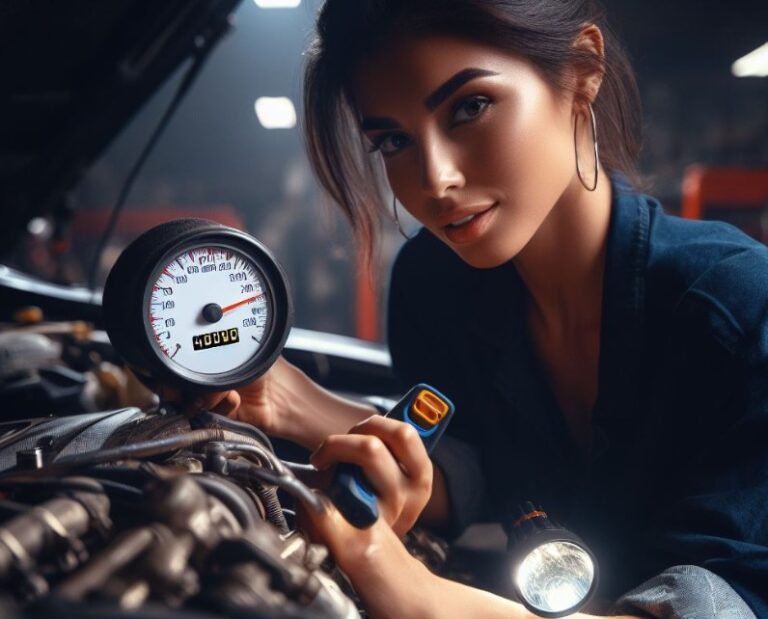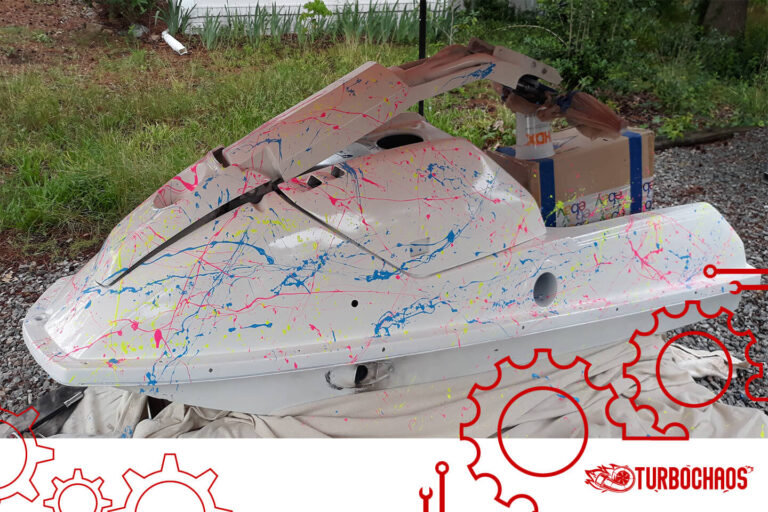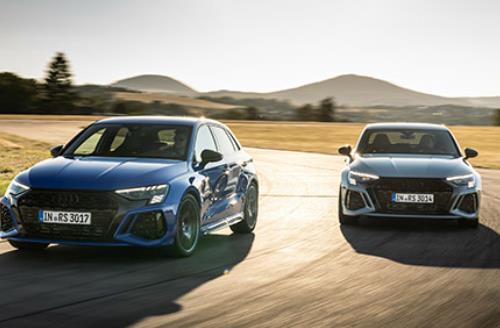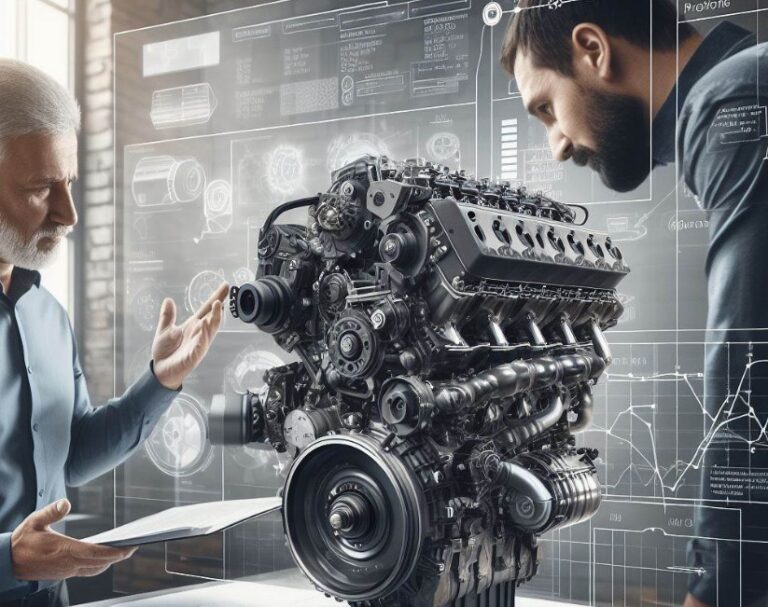Can A Diesel Engine Be Changed To A Petrol Engine? Answered
Explore the procedure how Can A Diesel Engine Be Changed To A Petrol Engine? The new BS6 emission rules will go into effect in a few days. Given that the new emission standards are much cleaner than BS4, it would have been the change of the century.
However, the new coronavirus has forced the country into a total lockdown. However, the new rules will take effect on April 1st. The Supreme Court has added some restrictions to the sale of BS4 vehicles.
Many questions remain for consumers. Can petrol engines replace diesel engines now that so many manufacturers, like Maruti Suzuki, Renault, Nissan, Volkswagen, etc., are pushing the plus on diesel engines?
Can A Diesel Engine Be Changed To A Petrol Engine?
Although it is technically possible to “convert” an engine from diesel to gasoline or petroleum products, the bare engine block is the only substantial component that may be reused.

To get a sparkplug hole for each cylinder, you would need new head(s). The compression ratio won’t alter if a diesel injector is replaced with a gasoline injector.
We must go deeper into gasoline and diesel engines to comprehend and respond to the issue.
Difference On The Basis Of Air Induction
- India now offers two different petrol engine variants. Petrol engines with and without turbocharging.
- The diesel engines, however, are only offered as Turbo Diesel engines.
Difference On The Basis Of Power And Torque
- Although they produce their power at higher RPMs, normally aspirated gasoline engines can match the output of diesel engines.
- The gasoline engines with turbochargers start to perform at this point. Petrol turbo engines have power at relatively low RMPs. However, neither of the petrol engines produces enough torque; in contrast, diesel engines deliver power at low RMPs. Even in turbo-diesel engines, there is immediate and greater torque at the low end of the RPM range.
Diesel-To-Gasoline Change
The Garage 54 team removed the engine, cleaned the components, and measured the combustion chamber before getting started. Because gasoline and diesel burn differently, diesel engines need a higher compression ratio inside the combustion chamber than gasoline engines do.
A compression ratio that is too high could cause the gasoline to ignite prematurely, possibly resulting in an engine explosion.
The crew made many modifications to the Toyota diesel engine, including 4mm of machining on the pistons, to significantly lower the compression ratio to prevent such a tragic consequence.
The crew also altered the engine’s fuel injector holes to accommodate spark plugs because diesel engines don’t have spark plugs.
The high-pressure fuel pump for the diesel engine was eliminated to make room for the distributor needed for the spark plugs.
Is It Possible To Convert 4 Stroke Petrol Engine To Diesel Engine?
Yes, it is possible, but you might also need to strengthen the engine. Certain engines use the same engine block for both gasoline and diesel engines.
Very early VW Golfs (some other nations may have referred to as the Rabbit) did this, and I’m sure at least one GM motor did it.
At the absolute least, thicker cylinder walls may be required for engines that run on gasoline or oil, which would need smaller pistons and reduce engine power.

A suitable high-top piston or major headwork would be necessary to improve the compression ratio from the typical 8 or 9 to 1 to roughly the 20:1 mark.
Additional strengthening of the seal between the head and the block would be necessary in addition to the increased compression ratio.
Holding the head down securely would take bolts, studs, and nuts of a much better grade and extra attention to the head gasket to ensure no loss of compression.
I need to learn more about variances in ignition time, but there might also be a difference in cam timing, and fitting and timing a good injection pump can be challenging.
The design of the injectors and the combustion chamber in the cylinder head differ, so this needs to be looked into. Additionally, glow plugs would need to be placed to enable cold starts.
The spark plug openings are suitable for this. Higher compression generates more heat, necessitating more effective cooling system components, beginning with a radiator of the largest practical size.
The fuel distribution system can also require revision. To transfer the necessary gasoline to and from the injector pump/engine, at the very least, it will need a proper filtering and de-watering system.
It may also need fuel lines or a pump of a different size. Last, the intake and exhaust should flow as freely as feasible. The more effectively a diesel can take air in and push exhaust out, the better.
A diesel is just a large air pump with fuel squirted into it. Good fortune. Someone with the necessary time, money, and resources will certainly succeed in doing it someday.
Is It Possible To Replace The Diesel Engine With A Petrol Engine For Cars?
Switching a car’s diesel engine to a petrol one is possible, but doing so involves a lengthy and complex process that calls for meticulous thought and preparation. To remember, have the following in mind:
- Compatibility: The new engine should work well with the vehicle’s existing cooling, exhaust, electronics, and transmission systems. The new gasoline engine must fit inside the compartment and work with the vehicle’s drivetrain.
- Engine Mounts and Accessories: To make room for the new engine, engine mounts, brackets, and other accessories may need to be changed or adjusted. The new engine’s air conditioning compressor, power steering pump, and alternator should all work with the car’s systems.
- Wiring and electronics: To work with the petrol engine, the wiring harness and electronic control units (ECUs) may need to be modified or changed. Different sensor needs and control methods may apply to diesel and gasoline engines.
- Fuel System: The fuel systems used by diesel and gasoline engines are different (high-pressure common rail for diesel and multi-point or direct injection for gasoline). To meet the needs of the new engine, the gasoline distribution system, fuel lines, and fuel tank may need to be modified.
- Exhaust system: The exhaust system may need to be modified to accommodate the new engine’s exhaust flow and emissions characteristics.
- Legal and Emissions Considerations: Changing a car from diesel to gasoline may have legal repercussions, particularly regarding emissions laws and vehicle inspections. Depending on where you live, such modifications might not be allowed or need clearance.
- Performance and Efficiency: The new petrol engine’s performance characteristics may differ from those of the original diesel engine. Power output, torque delivery, and fuel efficiency are some variables that may fluctuate.
- Cost and Expertise: Converting an engine requires considerable time, money, and knowledge. A qualified mechanic or automobile expert with competence in engine swaps and modifications is necessary.
While switching a diesel engine out for a gasoline engine is possible, doing so is a difficult operation that calls for careful preparation, technical know-how, and awareness of the risks and legal ramifications.
It is advised to get professional advice and do in-depth research on the viability and effects of such a modification for your particular automobile model and local laws before starting.
Conclusion
The one-word answer to your question can a diesel engine be changed to a petrol engine is Yes. Replacing a diesel engine with NA petrol can be simpler than the opposite.
Fuel pumps are currently available, but the pump pressure needs to be adjusted for gasoline engines. Additionally, spark plug circuits must be installed due to the spark ignition used in petrol engines.
Because they have different ratios than diesel engines, the gearboxes should be changed along with the engines. However, if the turbo must be kept, the boost from the turbo must be changed by the petrol engines because they rev more readily than diesel engines, which requires minor plumbing work.
Frequently Asked Questions
Is it worth switching from diesel to petrol?
Diesel vehicles are known for being more fuel-efficient, even though unleaded gasoline often costs less per liter. Therefore, diesel-powered cars are a longer-term, more cost-effective option regarding fuel costs.
What are the disadvantages of petrol engines over diesel engines?
The drawback of petrol engines is that they are less efficient than diesel engines and must be refueled more frequently. Over time, this can pile up and make petrol vehicles more expensive than diesel vehicles. Petrol automobiles often weigh more than their diesel counterparts. Therefore, they consume more fuel every mile.
Which engine is better, petrol or diesel?
Petrol fuel’s tendency to wear out engine parts more quickly results in a shorter lifespan for petrol engines. Diesel fuel causes less wear and tear than gasoline fuel, making diesel engines more durable. Diesel is less expensive than gasoline. Diesel is significantly less expensive than gasoline.

Welcome to the exhilarating world of Matt Rex, a professional car racer turned renowned vehicle enthusiast. Immerse yourself in his captivating blog as he shares heart-pounding adventures, expert reviews, and valuable insights on cars, trucks, jets, and more. Fuel your passion for speed and discover the beauty of vehicles through Matt’s engaging stories and meticulous expertise. Join the ever-growing community of enthusiasts who find inspiration and expert advice in Matt Rex’s blog—a digital hub where the thrill of speed meets the pursuit of knowledge.







